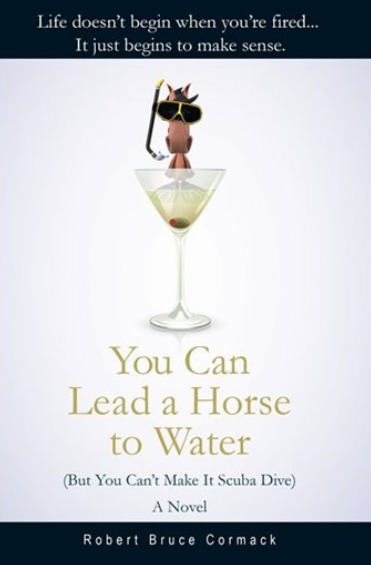We're All Someone Else's Cheerleader.
If everything seems ordinary today, it's because we're buying our enthusiasm from short people.

“Short people are just the same as you and I…” Randy Newman
In 1977, Randy Newman’s “Little Criminals” was released with a song that would make Paul Anka — a notorious short person — hopping mad. Newman’s “Short People” was a major hit on the Billboard Hot 100, peaking at №2 for three weeks, something Anka hadn’t done since “Diana” in 1957.
Anka attempted a rebuttal to Newman’s song, and Maryland delegate Isaiah Dixon tried to introduce legislation making it illegal to play “Short People” on the radio. Neither had much success. “Short People” was just too catchy. It was also one of the most misinterpreted songs in pop music history.
Randy wasn’t referring to racial prejudice. He was talking about short-minded people.
Once people found out it was about prejudice, Anka and Dixon backed off. Knocking a song lamenting prejudice gets you more death threats than prejudice itself. Randy got death threats, too, but mostly from short people.
Here’s what most people didn’t realize: Randy wasn’t referring to racial prejudice. He was talking about short-minded people. His real beef was with a music industry which was putting out a lot of mindless songs.
When “Short People” launched, it was kept out of the №1 slot by The Bee Gees’ “Stayin’ Alive” and The Players’ “Baby, Come Back.” Neither needed thought—or even eye movement. Barry Gibb hadn’t written anything deep since “To Love Somebody.”
Nevertheless, “Short People” was a serious indictment. Wasn’t he, in fact, accusing everyone of being small-minded? Weren’t we the ones with “tiny little hands and tiny little eyes,” accepting things as they are — not how they could be (unless it was Star Trek or Star Wars)
Louis Armstrong, Count Basis and Duke Ellington avoided black stereotyping by simply playing better than anybody else.
George Lucas and Gene Roddenberry became incredibly rich stepping out of the usual path. For them, anything could be. Nobody threatened them. All they had to do was throw in some model spaceships, special effects and space vistas. People don’t mind you not being ordinary in that case. You keep them amused. Louis Armstrong, Count Basis and Duke Ellington avoided black stereotyping by simply playing better than anybody else.
For the rest of us, though, we’re not filmmakers, Grammy-award winning musicians or jazz icons. We’re the public. You could say capitalism depends on our short-mindedness. Eventually, though, even capitalism peaks. We get bored, we get depressed, we accuse everyone and everything of being “the same old, same old.”
Recently, someone posted an article talking about how to gain audience interest. The rules were familiar and mostly rehashed. You had to “grab people with the first line,” “tell a story that interests your audience” and “leave people happy.” Most of all, “you have to believe what you write.”
Leave them feeling happy, even if their happiness has sad undercurrents of prejudice, hate and fear.
Since I’ve always earned a living from writing, I had to correct this person. I say “correct” because none of those rules mean much now. We don’t write like George Lucas and Gene Roddenberry. We write like Joseph McCarthy.
Our beliefs are formed the same way his were back in the 50s. If you want to be popular, write what people want to hear. Leave them feeling happy, even if their happiness has sad undercurrents of prejudice, hate and fear.
As I told this writer, “I wrote copy for 38 years (still do when I’m not writing novels and children’s books). I rarely believed in the products I sold but, like actors, our craft is making things believable. Part of that is learning to be someone else’s cheerleader. I was always someone else’s cheerleader until — like most cheerleaders — I became too old to do the splits.”
I also told him: “There’s nothing to be learned from ordinary people.” That’s the other problem we face today. We buy our enthusiasm from those very same ordinary people. Then we spread it around. Either we’re trying to ingratiate ourselves or do the ingratiating for others.
“After protesting his moves, you did not get up and leave right away. You continued to engage in the sexual encounter.”
Think about it, on every social media site, the latest views are impersonated. We want consensus. We want to attack when the crowd is backing us.
Take the case of TV host, Ashleigh Banfield, noted former war correspondent, who had a few choice words for the woman who accused Aziz Ansari of sexual assault. “You had a bad date,” Banfield said on the air. “He got overly amorous. After protesting his moves, you did not get up and leave right away. You continued to engage in the sexual encounter.”
Many feminists accused Banfield of “victim blaming.” But one blogger, Katie Way, went even further. “Ashleigh,” she wrote, “as someone who I’m certain no one under the age of 45 has ever heard of, I hope the 500 retweets on a single news write-up made that burgundy lipstick, bad highlights, second wave feminist has-been really relevant for a little while.”
When we go off script, we forget we’re still someone else’s cheerleader. In Katie’s case, she thought she was representing Babe.com. She thought she spoke for every woman under 45. Only sometimes we tangle with the wrong tanglers. Katie found that out going up against Ashleigh Banfield. She got bitch slapped on national television.
Even when people write fantasy novels, it’s only because Roddenberry and Lucas set the stage and J. K. Rowling made the mountain. It doesn’t matter that they refused to accept standard rules.
We say, “Oh, that wasn’t such a good idea, Katie,” and make a note not to mess with former war correspondents. Better to stay on the sidelines with the other cheerleaders. You don’t necessarily get noticed, but you don’t get bitch slapped, either. Why stick your nose out when it could get broken?
If anything, it re-enforces our need to be ordinary. Even when people write fantasy novels, it’s only because Roddenberry and Lucas set the stage and J. K. Rowling made the mountain. It doesn’t matter that they refused to accept standard rules. We wait until it’s normal and safe to do the same.
If you think about it, every commercial, every television show is asking us to be ordinary. They pronounce ordinary thoughts. They tell we can’t afford not to be ordinary. Wandering off into the wilds of creativity is how you get your typing hands chewed off.
We’re simply not that brave. Our few moments of abandon — as Katie West discovered — are quickly knocked down. Ashleigh Banfield comes across as brave and outspoken — yet her biggest bitch is her hair highlights. “I was brown-haired for a while,” she said, “when I interviewed Yasser Arafat and in Afghanistan and in Iraq, Gaza and the West Bank.”
She said what we wanted to say, but tomorrow we’ll go back to writing what’s expected. We’re conformists by proxy.
How do you compete with that? Not that Ashleigh isn’t someone else’s cheerleader. Every word she said had to be approved by the network. The imagery was still there, though. She stepped out and did a cartwheel.
We respect that as writers — and as people in general. She said what we wanted to say, but tomorrow we’ll go back to writing what’s expected. We’re conformists by proxy.
We might write a grabby line, or leave people feeling happy, but it’s dull because we buy our enthusiasm from ordinary people.
If we don’t want to be “short people” we have to do more than follow the others. We might even have to face being bitch slapped.
Worse things have happened in the name of originality. Not that we can go too far. Even Ashleigh Banfield can’t go too far. But we can always go a little further than we are now. We can think. We can stop being someone else’s cheerleader.
For a while, anyway.
Robert Cormack is a novelist, children’s book author and blogger. His first novel “You Can Lead a Horse to Water (But You Can’t Make It Scuba Dive)” is available online and at most major bookstores. Check out Yucca Publishing or Skyhorse Press for more details.

Articles from Robert Cormack
View blog
A short story about winning, losing and small engine repair. · “A man is not finished when he’s defe ...

Has the world gone crazy, or are we having daddy issues? · “The end move in politics is always to pi ...

Fuck. · “I thought about reading a poem by Shakespeare, but then I thought, why should I? He never r ...
You may be interested in these jobs
-
child caregiver
Found in: Talent CA 2 C2 - 21 hours ago
Enrico Esmilla Toronto, CanadaEducation: Secondary (high) school graduation certificate · Experience: 1 to less than 7 months · Work setting · Employer's home · Optional accommodation available at no charge on a live-in basis. Note: This is NOT a condition of employment · Staff accommodation available · Staff ...
-
Ingénieure / Ingénieur intermédiaire, Génie routier
Found in: Talent CA C2 - 1 day ago
Stantec Quebec City, Canada Temps pleinQui sommes-nous? · Vous recherchez une firme d'ingénierie où vous réaliserez des projets responsables et durables et où les équipes collaborent entre elles tout en favorisant le développement professionnel de chacun? Stantec , qui réunit experts œuvrant dans 400 bureaux dans le m ...
-

cook
Found in: Talent CA 2 C2 - 1 day ago
Boston Pizza Oshawa, CanadaEducation: Secondary (high) school graduation certificate · Experience: 1 year to less than 2 years · Work setting · Restaurant · Bar · Tasks · Prepare and cook complete meals or individual dishes and foods · Plan menus, determine size of food portions, estimate food requirements ...


Comments
Robert Cormack
6 years ago #1